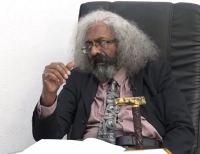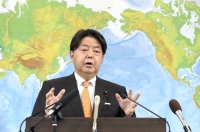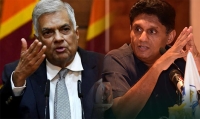Sri Lanka’s Prime Minister Ranil Wickremesinghe is scheduled to visit India between 14 and 16 September.
This is his first official visit abroad since he was appointed Prime Minister in January by the new President Maithripala Sirisena. That Wickremesinghe – like Sirisena in February – chose Delhi as the destination of his first state visit should reassure India of the priority it enjoys in the Sri Lankan government’s foreign policy agenda.
Wickremesinghe can expect a warm welcome in Delhi.
The Sirisena-Wickremesinghe team is “more trustworthy” than the Rajapaksa regime, an official in India’s Ministry of External Affairs said, drawing attention to their attempt over the past eight months to “restore balance” in Sri Lanka’s foreign policy, which had assumed a “pronounced pro-China tilt” during the Mahinda Rajapaksa presidency.
Relations between India and Sri Lanka deteriorated during Rajapaksa’s second term (2010-Jan 2015) over his government’s reluctance to initiate a meaningful reconciliation with the island’s alienated Tamils and the Sri Lankan navy’s detention of hundreds of Tamil Nadu fishermen straying into Sri Lankan waters.
India was also concerned over China’s growing role in the Sri Lankan economy; Delhi feared that Sri Lanka’s mounting indebtedness to China would result in the latter securing for itself a military presence in the island. Such anxieties became real in September-October 2014 when Chinese submarines docked twice in Sri Lanka’s harbors despite India’s objections.
Not surprisingly, when Rajapaksa was removed from the presidency in the January presidential election, India was relieved, only to have its apprehensions return a few months later when the ousted president sought to return to power as prime minister via the August general election. His failed attempt evoked relief in India’s Foreign Office.
The India-Sri Lanka relationship, which was “reset” in the wake of Rajapaksa’s ouster, is expected to improve further now, the MEA official said.
Among the issues the Indian government is expected to raise during Wickremesinghe’s visit are the fishermen conflict, the need for Colombo to “pursue assiduously” a solution to grievances of the island’s Tamils, the long-pending Comprehensive Economic Partnership Agreement (CEPA) and Sri Lanka’s relations with China.
On the fishermen’s issue, although Wickremesinghe had talked tough in March, warning Indian fishermen that they could expect to get shot if they entered Sri Lankan waters, in effect, his government has not been as harsh in its treatment of them as the previous government. Apparently, in recent months, the arrested Indian fishermen were not detained for long, prompting Delhi to believe that the Sri Lankan prime minister will be “reasonable” on the problem.
On CEPA too, India is optimistic. Wickremesinghe is a strong votary of the agreement.
It is on the question of China’s role in Sri Lanka that the two sides are unlikely to see eye-to-eye. While the Wickremesinghe government may avoid provoking India by allowing Chinese naval vessels to dock in its ports, it may not go far enough to please Delhi with regard to diluting ties with China.
India is keen on Sri Lanka cancelling Chinese infrastructure projects in the island especially the US$1.4 billion Colombo Port City (CPC) project, which it argues has implications for its security.
On becoming president, Sirisena suspended the CPC project pending an investigation. However, the project is likely to be revived in the coming months. Unlike India, Sri Lanka is not as bothered over Chinese investment in the island. Indeed it welcomes it as it needs investment in its infrastructure sector.
The main concern of the Sirisena-Wickremesinghe team is the unfavorable terms of contracts and the opaque manner in which they were finalized by the Rajapaksa government. Should the Chinese address issues such as environmental concerns, overpricing of projects, high rates of interest etc., with regard to the CPC project and other projects, the Sri Lankan government would not be averse to reviving suspended projects or even negotiating new ones.
However, the Sri Lankan government would do well to avoid excessive dependence on China. This is not a big challenge for Wickremesinghe.
Unlike Rajapaksa, who thumbed his nose at much of the international community and especially the West, Wickremesinghe is pro-West and could attract investment from an array of countries including Japan and the US. Diversifying sources of investment would go a long way in reducing Sri Lanka’s dependence on China.
That would calm Delhi’s nerves as well.
By Dr. Sudha Ramachandran
(Asia Times)












